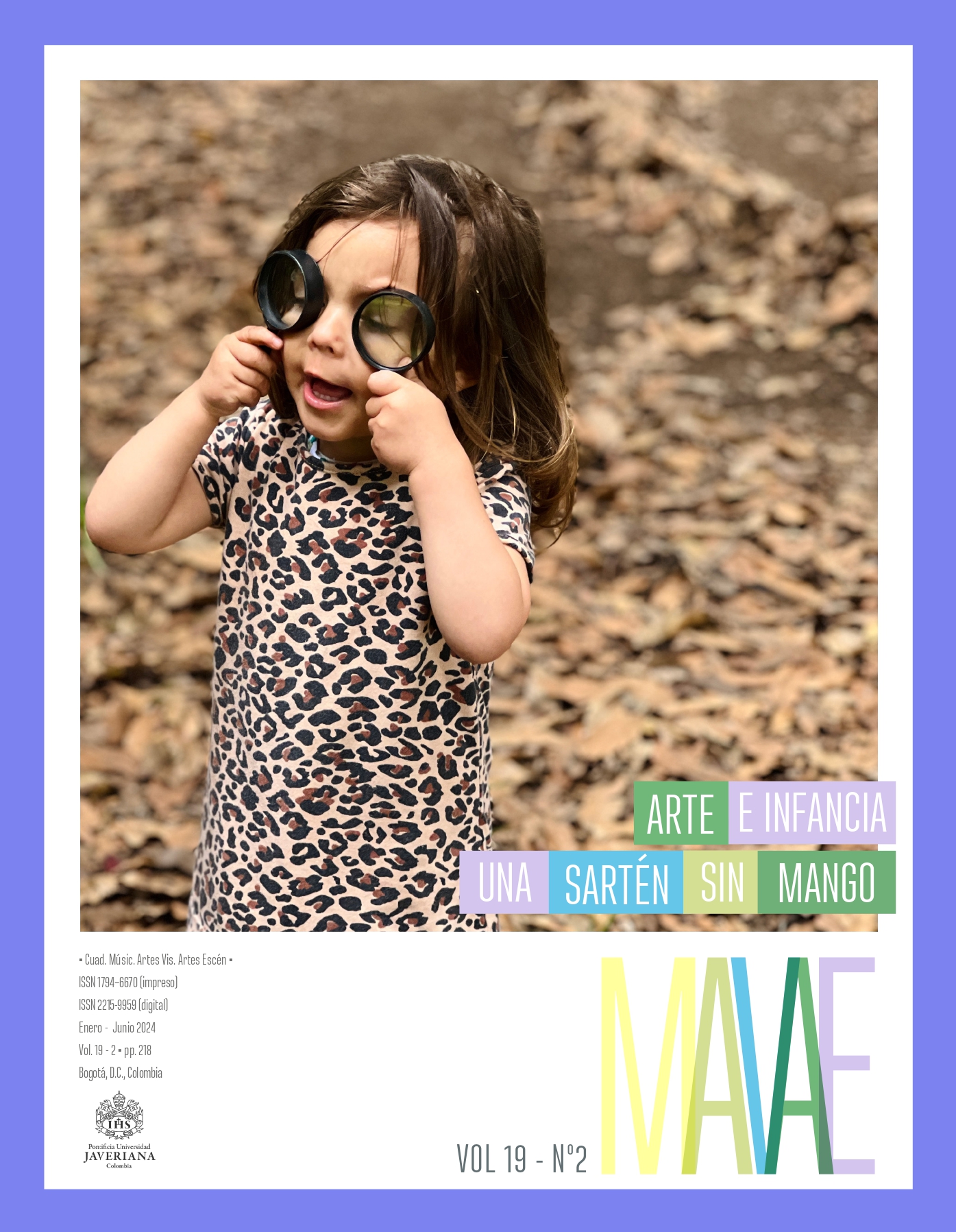Resumen
En 2021, el Grupo Cultural Yuyachkani celebró cincuenta años de un teatro interesado en discutir la memoria y el olvido. Los actos de luchar por narrativas disidentes, apartadas por la historia oficial y por la violencia colonial, convierten al colectivo peruano en protagonista de los caminos latinoamericanos. Tales temas no solo aparecen en espectáculos, sino también en diversas intervenciones en el mundo. Estas incluyen talleres, performances e intervenciones públicas, especialmente en comunidades de regiones periféricas o rurales. Este artículo pretende tejer reflexiones sobre el taller de creatividad infantil que invita a los participantes a conocer historias de América Latina, las cuales no son accesibles con facilidad en los vehículos televisivos o en las instituciones de educación formal del Perú. En un proceso de artes integradas, a partir de un cuento literario a través de la agencia lúdica y del rescate de memorias familiares y ancestrales, los participantes tienen la oportunidad de construir una experiencia escénica que amplía su referencia del mundo. En su proyecto de luchar por memorias borradas, Yuyachkani también asume responsabilidades históricas con sus niños y niñas. El taller busca construir conocimientos contracoloniales junto a sus jóvenes, ofreciéndoles una experiencia no hegemónica que valora el descubrimiento de lo originario en relación con los cuerpos y las cuestiones del presente.
Adichie, Chimamanda Ngozi. 2009. O perigo de uma história única.São Paulo: Companhia das Letras.
Agüero, José Carlos, María Angélica Pease, Tamia Portugal y Francesca Uccelli. 2017. Atravesar el silencio: Memorias sobre el conflicto
armado interno y su tratamiento en la escuela. Lima: Instituto de Estudios Peruanos.
Arendt, Hannah. 2016. Entre o passado e o futuro. São Paulo: Perspectiva.
Arguedas, José María. 2001. Todas las sangres. Lima: Peisa.
Izquierdo Ríos, Francisco. 2004. El bagrecico. Lima: Instituto Nacional de Cultura. https://bibliotecaelmanzano.com/wp-content/
uploads/2021/07/El-bagrecico.pdf
Milla Villena, Carlos. 2004. Ayni. Lima: Amaru Wayra.
Rivera Cusicanqui, Silvia. 2018. Un mundo de ch’ixi es posible: Ensayos desde un presente en crisis. Buenos Aires: Tinta Limón.
Rostorowski, María. 1995. Kon: El dios volador y el pequeño Naycashca.Lima: Banco Continental.
Rufino, Luiz. 2019. Pedagogia das encruzilhadas. Río de Janeiro: Mórula.
Rufino, Luiz. 2021. Vence-demanda: Educação e descolonização. Río de Janeiro: Mórula.
Sepúlveda, Luis. 2001. Historia de una gaviota y el gato que le enseñó a volar. Barcelona: Tusquets.
Simas, Luiz Antonio y Luiz Rufino. 2018. Fogo no mato. Río de Janeiro:Mórula.

Esta obra está bajo una licencia internacional Creative Commons Atribución 4.0.
Derechos de autor 2024 Ana Julia Marko


